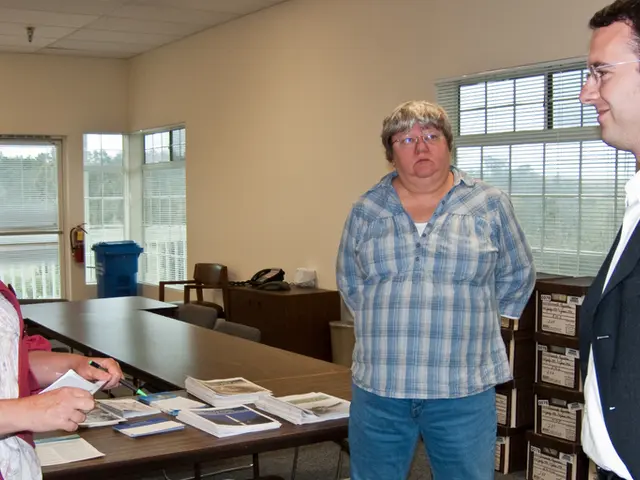"Sunday's Vote: A Pivotal Moment for Albania's European Union Ambitions"
Albania's Parliamentary Elections: A Key Evaluation for EU Integration Progress
Mark your calendars, folks! The citizens of Albania are heading to the polls this coming Sunday for a parliamentary election that might just be the key to unlocking the country's European Union (EU) membership dreams by 2030. Incumbent Prime Minister Edi Rama is gunning for another term, promising to keep the ball rolling on the EU front. His main rival is Sali Berisha, a right-wing ex-prime minister and ex-president, leading an opposition coalition with a Trump-inspired rallying cry of "Great Albania".
Polls are operational from 7:00 AM to 7:00 PM, with preliminary results expected to be unveiled by the Central Election Commission within a couple of days. For the first time, approximately 245,900 voters abroad had the opportunity to cast their ballots via mail.
If recent polls are anything to go by, it looks like the Socialist Party, helmed by Rama since 2005, is set to stay on top. The 60-year-old is aiming for his fourth term. Meanwhile, the 80-year-old Berisha, facing corruption charges from the Albanian justice system, intends to retake power after 12 years in the opposition wilderness.
Sources: ntv.de, AFP
Insight:
- With the Socialist Party's continued dominance in Albanian politics, the nation's EU accession aspirations by 2030 stand a stronger chance. The party's persistent governance allows for consistent policies focused on EU-required reforms, such as judiciary reforms, anti-corruption measures, and economic modernization.
- The Socialist Party's solid parliamentary majority enables them to push through legislative reforms more efficiently, which are indispensable for fulfilling EU membership criteria. The weaker opposition lessens the risk of political gridlock, potentially expediting EU-focused reforms.
- As smaller parties enter parliament, political discourse diversifies, but the Socialist Party's reform agenda remains untouched in the near term.
Warning:
Although the Socialist Party's dominance increases Albania's prospects for progressing towards EU accession, it doesn't guarantee membership by 2030. Substantial progress is required in addressing issues such as corruption, organized crime, and institutional reforms. The Socialist Party's success merely presents an opportunity, not an assurance of EU membership.
- The community policy of Albania is likely to remain focused on European Union accession, given the Socialist Party's persistence in governance and its promise to continue pushing for required reforms.
- The proposed employment policy in Albania, aimed at economic modernization and EU membership criteria, may witness smoother implementation with the Socialist Party's expected continued dominance in the parliament.
- Despite the Socialist Party's victory in polls, it's crucial to remember that Albania's EU membership by 2030 is not guaranteed, as significant progress is still needed in addressing issues like corruption, organized crime, and institutional reforms.
- Developments in Albanian politics, such as the potential migration of citizens due to war-and-conflicts or policy-and-legislation changes, will be closely monitored by the global community in the context of Albania's general news.
- As the political landscape in Albania unfolds post-election, the nation's position on EU-related policy-and-legislation, particularly concerning employment policies, will hold immense importance for the nation's future position in European politics.








